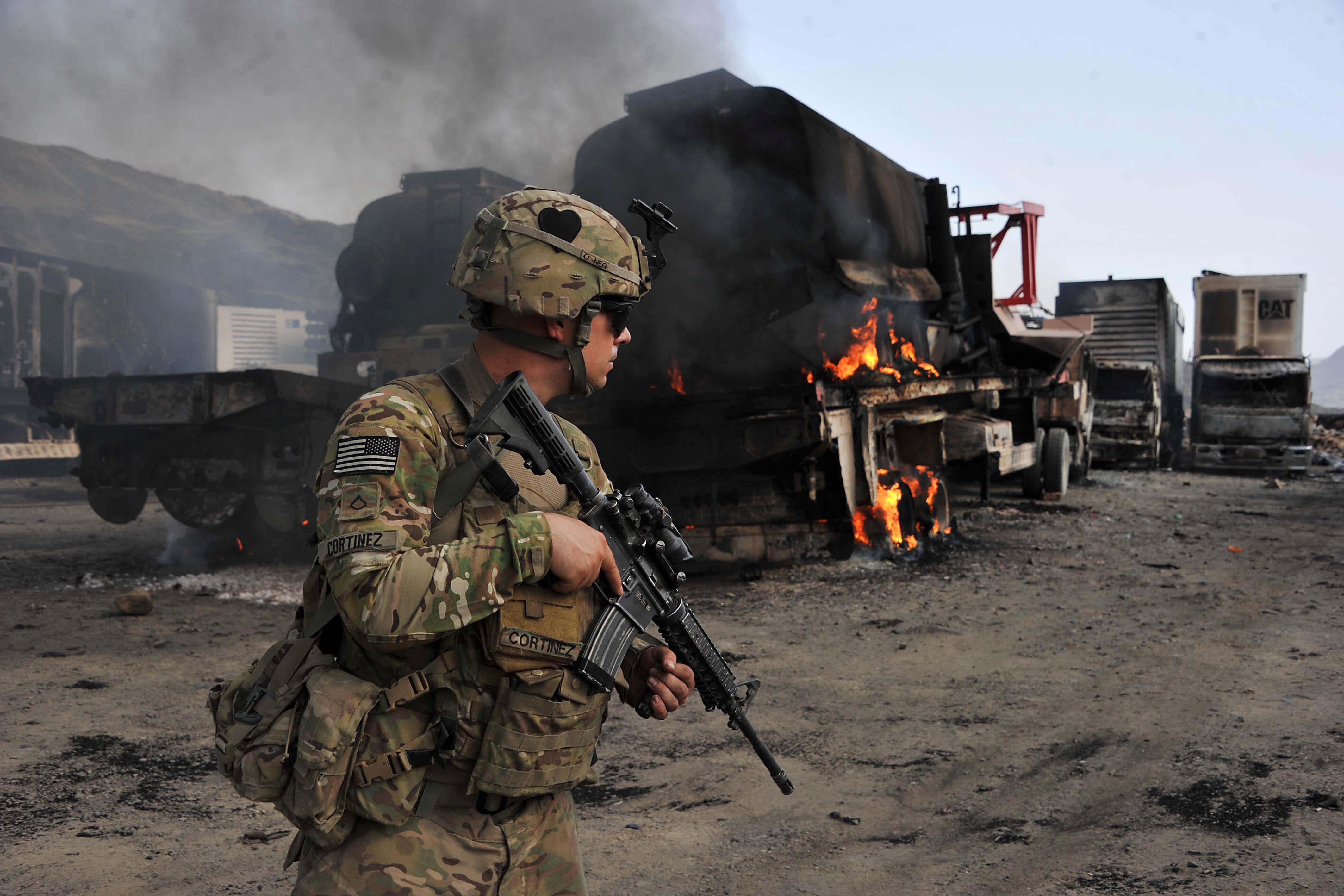The U.S. is suspending nearly all security aid to Pakistan, the New York Times reports today. This followed an earlier announcement this week from Ambassador to the United Nations Nikki Haley that the U.S. was withholding $255 million in aid from the country, which she accused of playing a “double game” on fighting terrorism. The State Department also placed Pakistan on a watch list for violations of religious freedoms today.
The tension between the Trump administration and Pakistan’s government has been growing for a while now. Trump called out Islamabad for giving “safe haven to agents of chaos, violence and terror” in his speech announcing the deployment of new troops to Afghanistan last August. Pakistan also had the honor of being the target of Trump’s very first tweet of 2018:
A little context is needed, though. First, this is a freeze in aid—the money’s not being reallocated. The administration similarly suspended some aid to Egypt last August. The current crisis could blow over, and there’s reason to believe it will.
While Trump makes it sound like he’s the first president ever to address this problem, he’s not. The Obama administration withheld hundreds of millions of dollars in military aid to Pakistan in 2011 and again in 2016. 2011 was a particular nadir in U.S.-Pakistan relations, with Islamabad’s furious reaction to the raid that killed Osama Bin Laden—which Pakistan saw as an unauthorized violation of its sovereignty—as well as Pakistan’s closure of the supply routes used by NATO to bring supplies into Afghanistan following an airstrike that accidentally killed 28 Pakistani troops.
The U.S. frustration with Pakistan is understandable. Pakistan is accused of providing safe harbor to terrorist groups including Lashkar-e-Taiba, blamed for the deadly 2008 Mumbai attacks, and backing the Afghan Taliban. Pakistan bristles at the accusation, describing itself as a victim of devastating terrorist violence—which is also true.
But the U.S. has proven unable to quit Pakistan since, perversely, it still needs Pakistan’s help to fight the very Taliban it accuses of the country of backing. The U.S. still mostly relies on air and ground lines through Pakistan to get supplies into landlocked Afghanistan, a need that will only become more acute now that Trump has significantly increased the U.S. troop presence there.
The Obama administration tried for a time to shift its reliance to the “Northern Distribution Network,” through Russia, Central Asia, and the Caucasus, but that was shut down by Russia in 2015 amid tensions with the West over the war in Ukraine. As Christine Fair notes, a newly refurbished Iranian port on the Gulf of Oman could be another option but U.S.-Iran cooperation … does not seem likely at this moment.
The Trump administration may think it can get Pakistan to clean up its act by playing hardball with aid (as Krishnadev Calamur of the Atlantic writes, suggestions for how to do this have been floating around Washington for months now), but U.S. officials probably can’t cut ties with the country entirely, either, so long as they’re doubling down on Afghanistan.
One thing that may have changed now, though, is that Pakistan’s leaders could have more options for patrons. Islamabad has suggested that Trump’s belligerence will lead it to re-evaluate its relationship with the United States and launch new overtures to China. Pakistan has tried to do this before, in 2011, but was mostly rebuffed by Beijing. Now, however, Pakistan is a major component of China’s ambitious “One Belt One Road” infrastructure initiative, and billions of dollars in Chinese cash have been flowing into the country. Whether the current U.S.-Pakistan blowup will last is unclear, but either way, Beijing will be watching closely.
